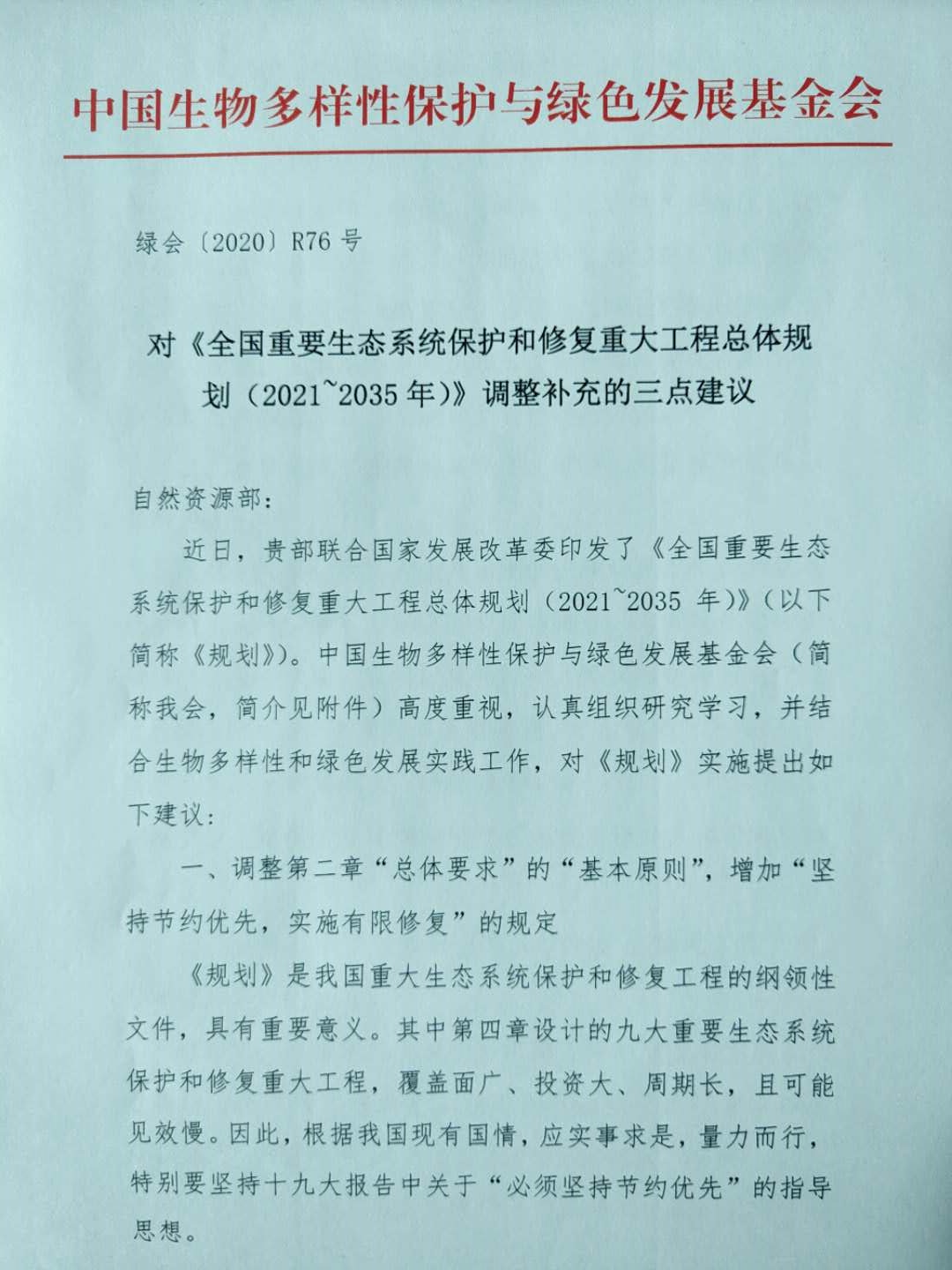Recently, the Ministry of Natural Resources and the National Development and Reform Commission jointly issued the "Master Plan of Major National Projects for The Protection and Restoration of Important Ecosystems (2021-2035)" (hereinafter referred to as the Master Plan). The China Biodiversity Conservation and Green Development Foundation (CBCGDF) Policy and Research Department attaches great importance to it, carefully organizes research and study, and combines the practical work of biodiversity conservation and sustainable development, and puts forward the following recommendations for the implementation of the Master Plan:
I. Adjust the "Basic Principles" of Chapter 2 "Overall Requirements" and add the provisions of "Insist on saving first, implement limited repairs"
The "Master Plan" is a programmatic document for China's major ecosystem protection and restoration projects, which is of great significance. Among them, the nine important ecological system protection and restoration major projects designed in Chapter 4 have wide coverage, large investment, and long cycle time, and may have slow results. Therefore, according to China's current national conditions, we should seek truth from facts and do what we can, especially sticking to the guiding ideology of "saving first".
The "Master Plan" as a policy framework document has a great impact on the relevant provinces involved. If the principled regulations and requirements are missing, without in-depth investigation and evaluation of the ecological environment, especially biodiversity, may result in large-scale construction in various places may lead to comprehensive and even excessive repairs. On the one hand, the precious financial resources of the country are wasted; on the other hand, the effect of ecological restoration is minimal, and it may even be contrary to the original intention of the "Master Plan" design. Therefore, it is recommended to add the content of "adhere to conservation priority, implement limited repairs" in the basic principles, and control the source from the top-level design.
II. In Chapter 5, "Safety Measures", add provisions for long-term monitoring and information disclosure
The nine major ecosystem protection and restoration projects designed by The "Master Plan" are huge in scale and will surely arouse widespread international and domestic attention. In order to achieve the integration of social and environmental benefits of ecological protection and restoration, it is recommended to establish a long-term monitoring mechanism in the safeguard measures and ensure their effective implementation. Macro-scale long-term monitoring for the next 5 to 50 years can be set to ensure the restoration effectiveness. At the same time, establish an information disclosure system to publicly protect and repair the use of funds throughout the process and accept the supervision of the people.
III. In Chapter 4, "Major Ecological Protection and Restoration Projects in Coastal Zone", the restoration of seagrass beds is added
In recent years, scientists have discovered the eelgrass seagrass bed, which is the largest known area of temperate sea area in China, on the Long Island of Caofeidian off the Bohai Bay and the adjacent waters. The core area is about 30 square kilometers. Known as the "lung of the ocean", seagrass is a natural barrier to protect the coast and provides an important habitat for diverse life in the ocean. As an important part of mitigation and adaptation, seagrass provides a powerful natural solution to the impact of climate change.
Currently the chapter 4 of the "Master Plan", the “Coastal Zone Ecological Protection and Rehabilitation Key Project” section of the “Ecological Protection and Restoration of the Yellow Sea and Bohai Sea”, the restoration of seagrass beds is missing, and it is recommended to add.
It is hoped that the Ministry of Natural Resources will adopt relevant recommendations in the process of implementing the "Master Plan". CBCGDF will fully assist in cooperating with related work and implement the construction of ecological civilization.

(Photo credit: CBCGDF)
Original Chinese article:
http://www.cbcgdf.org/NewsShow/4854/12797.html
By / Maggie, Xiling
